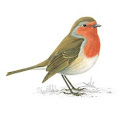I’m on a train somewhere in Belgium or France (in these days of the Schengen agreement it’s hard to tell when you pass from one to the other), and I’m contemplating how pleasant this mode of travel is. Compared to a plane, there is so much leg room, the windows are so big, and there’s a big fold-out table in front of me, on which my computer can comfortably sit. We are on our way to Porto, and our Air France ticket includes a leg on the train from Brussels to Paris. This seems like a good way to do things, and we’ll have to keep it in mind for the future. It was less of a hassle to hop on the metro and then hop on the train bound for Charles de Gaulle (and hour and a half) than to the normal process of getting the bus, then the airport train (a half hour), then stand in line at the airport….
I’m also thinking, as I watch the eternally gray sky, green fields, and tidy villages roll by, with my reflected face superimposed on the scene like a pensive ghost, what a horrible place—or perfect place, depending on how you see it—Belgium was to have a war. The never-ending damp, the depressing gray, the mud up to the waists of the men in the trenches—this is either a sadistically awful or gruesomely appropriate setting for war.
Reading Paul Fussel’s The Great War and Modern Memory last year, I got a chilling sense of the utterly debased way that modern warfare was practiced. After the cheerful flags waved them over the English Channel, the poor boys sat in mud next to the decaying corpses and bits and pieces of flesh of their comrades. Fussel’s whole point, and that of many critics who have followed him, is the impact of such an experience on our general cultural fabric, how much our collective memory is shaped by such horror.
But looking at these serene green fields, I wonder how much we have forgotten, as well. Belgium is no longer the symbolic victim of Teutonic rape; it is Europe’s capital, known for chocolate and beer. It’s hard to imagine the scenes of the Great War happening here. Sadly for us, however, we have new, even more horrific images of war and destruction from around the world to replace the old ones.
It is ironic in some ways that my thesis has a lot to do with how we respond to war and the images we make of it. Ironic, because my own experience of war is limited to the televised and sanitized versions in the media, and perhaps that one day in Washington, September 11, 2001… And also because I hate war, am by nature pacifist, and have more unresolved questions than answers about the interaction of such a technological and brutal exercise with the rarified world of poetry. But my antipathy toward and limited experience of war is also somewhat appropriate, because as my area of study is literature, my concern is precisely with representations of war. How was the Spanish Civil War written about and pictured both by those who were there and those who were not? For many in the late 30s, Spain was something like what Iraq or Darfur is to us now, a distant reality, filtered by representations even if our concern is pressing.
Anyway, this wasn’t really what I meant to write about at all while shuttling across the fields of northern Europe in a high-speed train, but there it is. On this trip, I have brought my computer along in hopes of getting some work done, so that also means I will be able to blog from time to time.
And that means you’ll hear about my impressions of Porto, and Portugal. I’ve never been to Portugal before; although in 1999 I was on my way there with two girlfriends during term break from Oxford, when we aborted that plan and on a whim headed to Algeciras and then Ceuta instead (the only time I’ve set foot on the African continent).
Making up for the missed opportunity, I plan to enjoy lots of seafood and drink port and maybe absorb a little Portuguese. Anyway, I’ll be sure to write again in the near future, and post this entry as soon as I find an internet connection.
Editor’s Note: I was obviously far too hasty in my optimism about internet connection.
05 December 2006
En route
thoughts thunk by
Robin
at around
13:09
![]()
phylum or species: On the road, Thesisy thoughts
Subscribe to:
Post Comments (Atom)

No comments:
Post a Comment